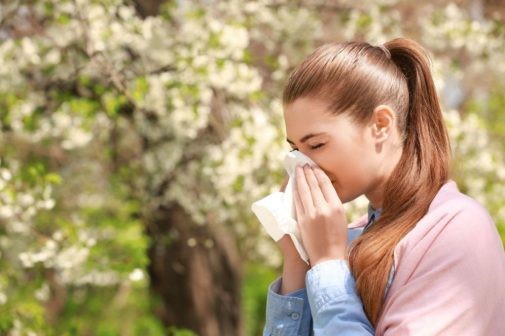Are Your Allergies Getting Worse?

Most people can tell spring has finally arrived because of warmer temperatures, more sunshine and birds chirping. If you have seasonal allergies, you know that spring has arrived because your allergies have taken up residence and brought with them itchy eyes, a runny nose and sore throat.
And if you’ve thought your allergies are more severe the last few years, have arrived sooner and stuck around longer, you probably aren’t wrong. “Allergy season has always peaked in the spring, and a second time in the fall,” says Dr. Mark Hermanoff, an allergist with Aurora Health Care in Milwaukee, Wis. “With the warmer climate, peak allergy seasons have been starting sooner and lasting longer.”
Not only that, but more people are developing seasonal allergies, he says. “The number of people affected by allergies has been increasing,” Dr. Hermanoff says. He says that the increase includes people dealing with pet and food allergies.
The triggers and severity of seasonal allergy symptoms are different for each person, but the change in weather patterns in recent years has played a role in when they start and how long they last. “Our weather patterns have changed in the last several decades,” Dr. Hermanoff says. “Pollen seasons are more intense, and the winter frost is occurring later. Our lifestyles have also changed. Now we spend less of our early lives exposed to outdoor activities like farming or gardening, which may play some role in increasing the number of people who are affected by allergies.”
Dr. Hermanoff offers some tips to help people suffering from seasonal allergies:
- Limit outdoor exposure during peak allergy season, especially early in the morning.
- Shower and change clothes to remove pollen from clothing and hair after outdoor activity.
- Avoid dead and dying grass, mulch and vegetation where outdoor molds grow.
- Keep windows closed and run air conditioning to limit levels of outdoor pollen in the home.
If simple measures like avoidance and antihistamines fail to control your symptoms, it can be time to seek professional guidance. If you have asthma or are developing recurrent sinus infections, it can be especially important to talk to your doctor about symptom management.
“An allergy evaluation can help identify what triggers are setting off symptoms and look for complications like asthma and sinus infections,” Dr. Hermanoff says. “Allergy symptoms can be severe and make life miserable for those who suffer,” he says. “Just when the weather in the upper Midwest is getting nice, people with allergies have difficulty being outside. Treatment can make a difference.”
Article contributed by: Advocate Health Care health enews staff
Tags: #allergies, #health, #parishnurse

Comments are closed here.